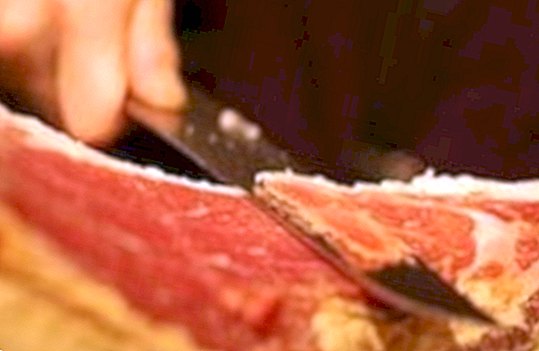Does water help you lose weight? Myths and realities
Our human body is composed of water around 65% of the total. That is, we are formed by a good part of water that we must replace when we sweat because, if not, we can become dehydrated.
Water is one of the best drinks there, not to say the best, but now, to think that water helps to lose weight is a myth because it does not lose weight, nor does it make you fat.

We will see the importance of drinking water for the organism, and some myths and reality of it.
Water in the diet
Water is essential to live. About the amount of water that we drink every day has also been written a lot, and it depends, in a good way, the body of each person.
In general, we can say that we should drink 2 to 3 liters a day, and much more in times of special heat. According to the Water and Health Research Institute (IIAS), the male sex needs the daily amount of 3 liters of water, while women only need 2.2 liters. To get a liter, we can drink 4 glasses of water during the meal.
It is important to note that water has no calories, that is why it does not lose weight, nor does it make you fat, although many people associate it with slimming diets.
To maintain a slender and thin body is essential to have a rich and varied diet, consisting essentially of fruits, vegetables, and fish, and water as a drink.
Some studies relate water to good diet. This is the case of the one published in the American Journal of Clinical Nutrition, which showed that by increasing the amount of water by one liter a day, the participants lost 2 to 3 kilos more than the control group, which did not increase the amount of water.

But this is for having increased the intake of water and reduced, surely, the consumption of beverages rich in sugar and gas. But the study does not prove that water is a remedy to lose weight.
While water is good for the body, we can not abuse it either. When you drink much more than necessary, the stomach fills up and can be harmful to the body.
Benefits of water in our day to day
The World Health Organization (WHO) indicates that water does not contribute significantly to the total daily intake of sodium, so salt water does not increase the pressure.
- Water helps to avoid the sensation of hunger, but it is clear that this does not mean that it diminishes us.
- It serves to hydrate us, so the body will receive the necessary water and the skin will be fresher and vitalized.
- Water helps speed up the elimination of toxins from the body.
- It also helps regulate body temperature.
- Water transfers nutrients and is responsible for the maintenance of organs and joints.
- If you drink in moderation, relieve fatigue.
- It helps us to dry our mouths for various reasons.
- Water helps in digestion and constipation.
- If we keep properly hydrated and the mouth is not dry, we slow down the development of bacteria in the mouth that are found in saliva, and thus prevent dental diseases such as gingivitis or tooth decay.
- Water decreases the stones or stones in the kidney and the incidence of urinary tract infections.
- Research from Harvard University concludes that the intake of water in appropriate amounts reduces by 45%, the risk of colon cancer.
- Water also helps hydrate the mucous membranes lining the nose, decreasing the chances of viral infections.

Some myths and realities
As we see, a good number of people have the false belief that water is thinning, but it is not exact. It is also a myth to think that water that is drunk before eating will help us lose weight. There are other myths related to water, such as that the filtered one eliminates germs, because several studies are needed to determine it.
On the other hand, there are those who believe it is better not to drink liquids three hours before and three hours after eating solids. This is a myth. This article is published for informational purposes only. You can not and should not replace the consultation with a Nutritionist. We advise you to consult your trusted Nutritionist. ThemesWater


